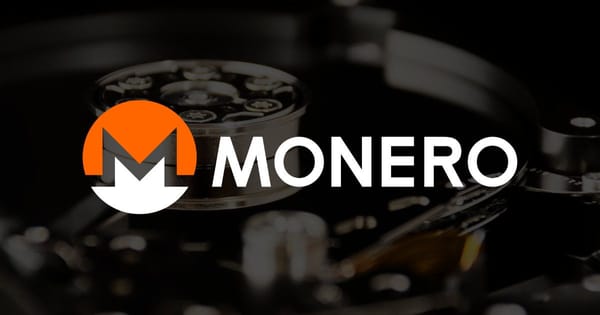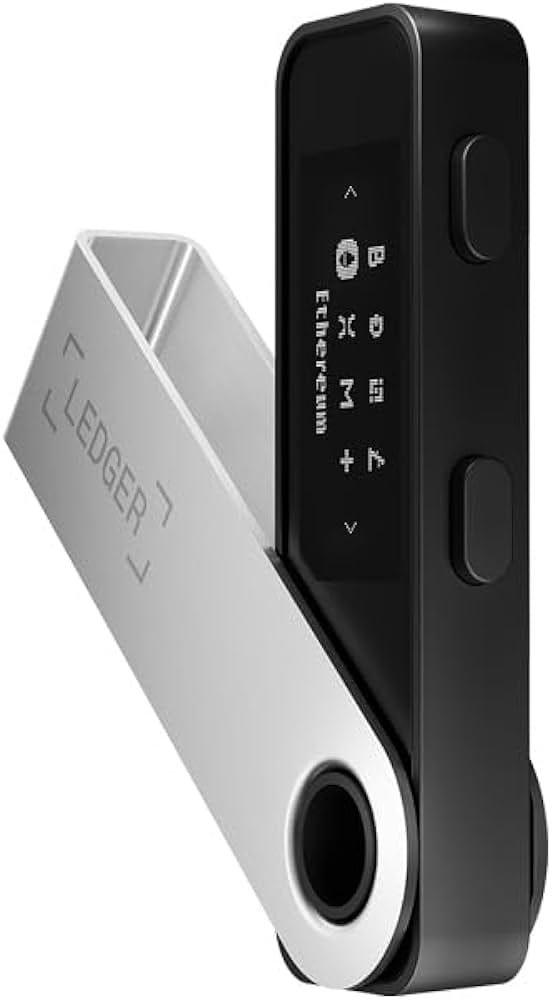What Is Monero

Okay, okay, Monero. Right. What is Monero? That’s the question, isn’t it? Seems simple enough. But then you start digging, and… whoa. Rabbit hole alert. Cryptocurrency, obviously. But… different. Very different, in some ways. Let’s see, how to even start?
Maybe… maybe start with Bitcoin? Yeah, everyone’s heard of Bitcoin. “Digital gold,” “revolutionary,” all that jazz. And it is… kinda. But Bitcoin, for all its hype, it’s… transparent. Like, really transparent. Every transaction, every address, it’s all on the blockchain, right? Public ledger. Everyone can see it. Which is… good for some things, I guess? Transparency, accountability, blah blah blah. But… privacy? Not so much.
Wait, am I getting ahead of myself? Maybe I should define cryptocurrency first? Ugh, boring. But… maybe necessary? Okay, fine. Deep breath. Cryptocurrency… digital or virtual currency that is secured by cryptography. Decentralized. Blah blah. You know the drill. Bitcoin, Ethereum, Dogecoin for the memes… and Monero. See, I got there eventually.
Monero. Okay, back to Monero. So, Bitcoin is transparent. Transactions are linked to… addresses. Which, technically, aren’t names, right? Pseudonymous. But… but people are clever. Chain analysis companies, governments… they can track those transactions. They can link addresses to real-world identities. It’s… not as private as people think. Oops, did I just badmouth Bitcoin? Don't tell the Bitcoin maximalists. They get… intense.
Right, Monero. So Monero, it’s like… the opposite of Bitcoin in this way. It’s private. Like, really private. That’s the whole point. Privacy-focused cryptocurrency. That’s its tagline, isn’t it? “Private. Secure. Untraceable.” Something like that. Let me Google it… Yep. “Private. Secure. Untraceable.” Nailed it. Kind of.
But how is it private? That’s the million-dollar question, isn’t it? Or, you know, the… Monero-dollar question. XMR-dollar? No, doesn’t sound right. Anyway. How? Magic? No, not magic. Cryptography. Fancy cryptography. Stuff that makes my head spin a little bit, to be honest. But let’s try to explain it. For… for the people. For you, dear reader. If anyone’s still reading at this point. My thoughts are kinda all over the place, aren't they? Sorry. Brain dump mode.
Okay, privacy tech in Monero. Three main things, I think. Ring Signatures, Stealth Addresses, and Ring Confidential Transactions (RingCT). Did I get that right? Let me double-check… Yep. Those are the big ones. There’s also Dandelion++… but maybe that’s getting too deep too fast. Let’s stick to the basics for now. Or… are those basics? Privacy tech is never really “basic,” is it? Hmm.
Ring Signatures. Sounds cool, right? Like something out of Lord of the Rings. Except, you know, digital. And less about rings of power, more about… rings of privacy. Okay, bad analogy. Let’s try again. Ring Signatures… when you send a Monero transaction, it’s not just your signature on it. It’s… mixed in with other people’s signatures. Like a group signature. So, when someone looks at the blockchain… and they see a transaction… they can see that someone in this group signed it. But they can’t tell which person in the group it was. See? Privacy! Sneaky, sneaky.
Wait, did I explain that well? Maybe not. Let’s try again, simpler. Imagine a group of people. Say, five people. One of them writes a message. But instead of signing their name, they use a “ring signature” of the whole group. So, the message is signed by “Person from Group A.” You know it came from someone in Group A, but you don’t know who. That’s… kinda like Ring Signatures in Monero. Except, you know, with cryptography and computers and stuff. Is that better? I hope so. This explaining thing is harder than it looks.
Okay, Ring Signatures. Check. Sort of. Moving on. Stealth Addresses. Sounds even cooler, right? Like a ninja address. Or… a spy address. Okay, I’ll stop with the bad analogies now. Promise. Stealth Addresses… these are for receiving Monero. When someone wants to send you Monero… they don’t send it to your “public address,” like in Bitcoin. Instead, they use your public address to create a one-time stealth address. Just for that transaction. So, every time you receive Monero, it’s a different address. On the blockchain, it looks like it’s going to all these different, unrelated addresses. But… you control all those stealth addresses, because they’re all derived from your single public address. Magic! Well, not magic. Crypto-magic. Math-magic. Whatever.
So, Ring Signatures hide who sent the Monero. Stealth Addresses hide who received it. See how this privacy thing is working? It’s like… layers of an onion. Privacy onion. Is that a thing? Probably not. But it should be.
Right, third privacy layer. Ring Confidential Transactions. RingCT. Catchy name. What does it do? Well, in Bitcoin, you can see the transaction amounts, right? Alice sends Bob 1 Bitcoin. Everyone on the blockchain sees “1 Bitcoin.” Transparent. Again. But in Monero… with RingCT… the transaction amounts are hidden. Encrypted. You can’t see how much Monero was sent in a transaction. Unless… unless you’re one of the parties in the transaction. Sender and receiver can still see the amount. But everyone else? Nope. Secret amount. Privacy! Again! Are you seeing a pattern here? Monero = Privacy.
So, let’s recap. Ring Signatures: hide sender. Stealth Addresses: hide receiver. RingCT: hide transaction amount. Put them all together… and what do you get? Monero! Private transactions. Untraceable transactions. Fungible transactions. Wait… fungible? What’s fungible? Is that even a word? Let me check… Yep, fungible. Means “interchangeable.” Like… like dollars. One dollar is the same as any other dollar. Doesn’t matter which dollar bill you have, it’s still worth a dollar. Fungible.
Why is fungibility important for cryptocurrency? Hmm, good question. Let me think… Okay, imagine Bitcoin again. Because Bitcoin is transparent… if some Bitcoin gets used in something… “bad.” Like… buying something illegal on the dark web. Or… ransomware payments. Those Bitcoins might get “tainted.” Blacklisted. Exchanges might refuse to accept them. Businesses might not want them. Because… tainted. Not fungible. One Bitcoin is not the same as another Bitcoin, if one is tainted. Problem.
But Monero… because it’s private… transactions are untraceable… you can’t “taint” Monero. Every Monero is the same as every other Monero. Fungible. This is… actually a big deal. Think about it. If a currency isn’t fungible… it’s kind of broken, isn’t it? Like… imagine if some dollar bills were “tainted” and no one wanted to accept them. Chaos!
So, Monero’s privacy… it’s not just about being sneaky or hiding something. It’s about… making the currency work properly. Making it fungible. Making it… sound money, maybe? Hmm, that’s a bit of a loaded term. “Sound money.” Bitcoin people love that term. Maybe Monero people should too? Or is that too… controversial? Cryptocurrency is full of controversies, isn’t it?
Okay, so Monero is private, fungible… what else? Decentralized, obviously. Like most cryptocurrencies. No central bank controlling it. No government printing Monero willy-nilly. It’s… community-driven. Open-source. Developers all over the world working on it. That’s… good, right? Decentralization is good. In theory, anyway. In practice… sometimes it’s a bit messy. Lots of different opinions, disagreements, forks… But Monero seems to have a pretty strong community. Dedicated. Passionate about privacy. Maybe a little bit… intense? Like, privacy maximalists? Is that a thing? Probably.
What about… security? Is Monero secure? Well, it uses cryptography. Strong cryptography. Same stuff that secures… you know, banks and governments and stuff. So, yeah, probably pretty secure. Has it been hacked? Let me think… Not the Monero blockchain itself, as far as I know. Individual exchanges that deal with Monero… maybe. Exchanges get hacked all the time, doesn’t matter what cryptocurrency they’re dealing with. But the Monero protocol… seems solid. Touch wood. Don’t jinx it.
Okay, so we’ve covered privacy, fungibility, decentralization, security… What about… use cases? What do people actually use Monero for? Besides, you know, buying things on the… dark web. Let’s be honest, that’s probably a big part of it. Privacy coins and dark markets… kinda go hand in hand, don’t they? But… but there are legitimate uses for privacy too! Right? Of course there are!
Think about… journalists in countries with oppressive regimes. They need to communicate securely, anonymously. They might need to receive payments without being tracked. Monero could be useful for that. Or… activists. Human rights defenders. People who are… you know, fighting the good fight. Privacy is important for them. Life or death important, sometimes. Monero can provide that.
And… just regular people! You and me! Do we need privacy? Yeah, probably. Think about… your bank transactions. Do you want everyone to know how much money you have, where you spend it, what you buy? Probably not. Privacy is… normal. Expected. In the physical world, anyway. Cash is private. Why shouldn’t digital money be private too? That’s… kinda Monero’s argument, isn’t it? Bringing cash-like privacy to the digital world.
But… but the “dark web” thing… it’s still there, isn’t it? Governments and regulators… they don’t like privacy coins. They say they’re used for… illicit activities. Money laundering, tax evasion, terrorism funding… The usual suspects. Are they right? Maybe. Partly. Criminals will use whatever tools are available to them. Including privacy coins. But… does that mean privacy coins are bad? Should they be banned? That’s… a slippery slope, isn’t it? Banning privacy because criminals might use it… What about encryption? Criminals use encryption too. Should we ban encryption? No, of course not. Encryption is essential for… well, everything, really. Privacy is important. Even if… even if bad people sometimes use it for bad things.
It’s a… balancing act. Privacy vs. security. Privacy vs. law enforcement. It’s not easy. No easy answers. Monero is… on the privacy side of that balance. Very much so. Maybe… too much so, for some people. Too “radical” privacy. But… but is it really radical to want privacy in your financial transactions? Is it radical to want fungible money? I don’t know. Maybe it is, in today’s world. Where everything is tracked, monitored, analyzed. Surveillance capitalism, they call it. Monero is… kind of a rebellion against that, isn’t it? A digital rebellion. Privacy rebellion.
So, what is Monero? In a nutshell? Private, secure, untraceable cryptocurrency. Fungible. Decentralized. Community-driven. A bit… controversial. But… important. Maybe. I think so, anyway. Privacy is important. Fungibility is important. Choice is important. Monero offers a choice. A different kind of cryptocurrency. A cryptocurrency that prioritizes privacy. And… maybe that’s what the future of digital money should look like. Or… maybe not. Maybe it’s too niche. Too… risky. Too associated with… you know. Dark web stuff.
I don’t know. I’m just… thinking out loud here. Writing this article. Trying to figure out what Monero is. And… I’m still not sure I fully understand it. It’s complex. Lots of technical details. Cryptography is hard. Privacy is… philosophical. Political, even.
But… but I think I get the gist. Monero is about privacy. And… that’s a powerful idea. In a world that’s becoming less and less private. Maybe Monero is… more important than ever. Or… maybe I’m just getting carried away. It’s easy to get carried away with cryptocurrency, isn’t it? Hype cycles and moonshots and… all that. But… Monero feels different. Less about hype, more about… principle. Privacy principle.
Okay, I’m rambling now. I should probably wrap this up. What’s the conclusion? Is there a conclusion? Maybe the conclusion is… to learn more about Monero. Do your own research. Don’t just take my word for it. I’m just some guy writing an article, jumping around with my thoughts, probably making mistakes along the way. But… hopefully, I’ve given you a… a starting point. A glimpse into the world of Monero. The world of private digital cash. The world of… maybe, just maybe, a more private future. Or… maybe not. But it’s worth thinking about, isn’t it? Privacy is worth thinking about. Monero is… worth thinking about. Okay, I’m really rambling now. Stop. Article over. For now. Maybe I’ll write another one later. When my thoughts are a bit less… jumpy. Maybe. Or maybe this jumpy style is… kind of fun? I don’t know. You tell me. Okay, now I’m stopping. Seriously. Goodbye. For now. Monero… hmm. Interesting stuff. Very interesting. Okay, bye.




